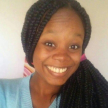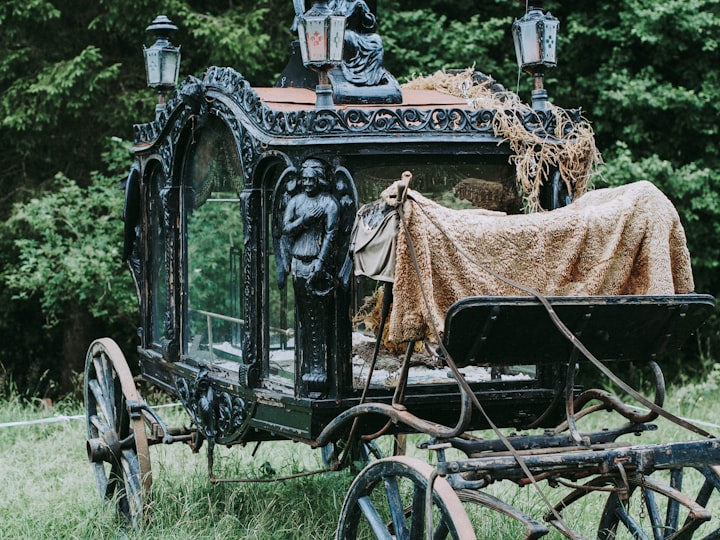Let’s Have a Conversation about Gender Identities
Who am I? Who are you? Who should we be?

Since my childhood, I was being judged and bullied because of my quiet neutral style. Some people thought I was too awkward to be a girl, some others imagined that I was a lesbian, and I did choose my style on purpose.
However, as I have already explained in one of my stories, I am not a lesbian; but I maintain a certain fluidity in gender expression. The main reason is that sometimes I feel that some of the social norms regarding femininity are too oppressive and restrictive. Therefore, I just let go of some of them at times so that I could feel comfortable.
Nevertheless, I still enjoy the womanhood journey and I am still attracted to boys. That is, I am a binary person as for sexual orientation and gender identity. But are there any other possibilities? Hell yes! There are plenty of them.
Should anyone be a binary person like me? At what cost?
I am not the first person to affirm that there are many gender identities (like male, female, transgender, gender-neutral, non-binary, agender, pangender, genderqueer, two-spirit, third gender, and all, none or a combination of these ). Neither could I take the credit for being the first to say that our societies should acknowledge this diversity and respect the choices of people who adhere to either of these categories, many works like this one have addressed the notion of gender diversity with a quite broader vision than mine.
As for all social matters, the more we speak about them, the more we have come to see nuances within a same subject. And the more diverse and different the debates are, the larger the audience has become. Therefore, my view on gender identities maybe useful, in a way that it might bring something new in a very complex debate or, at least, it might help express some ideas in a different way.
This article aims to engage in a conversation about gender non-conforming people difficulties, by addressing these following questions: If there are scientific works that prove people could be of a very long-list gender identities, why do non-binary people are still suffering from discrimination and bullying? Why do some countries consider being identified as LGBTQ as a crime?
I would try to answer the first question and the second one would be addressed in another article.
Even in countries where being a transgender or a gender fluid is legal, there are still some exclusions towards these communities either because of some implicit norms and decisions, or because of the lack of formation and information within the population.
The LGBTQ+ discriminations and oppressions are above all a systemic problem unrooted in our religions, social norms, and habits.
Although the legalization part fosters a certain confidence within these marginalized communities and allows people to start engaged conversation (at least without the fear of being sued and jailed for their discourse and actions), there would be no efficient change with only legalizing the non-binary orientations.
There is a large list of actions (sometimes seen as nonsense) that should be incorporated in our societies before non-binary people feel totally integrated. Especially in these following spheres:
1. Public restrooms
As I have explained in one of my stories, the public toilets are stressful places even for binary people. For the gender non-conforming communities, the repugnance and reluctance toward using public restrooms is more likely to be even higher, because of different factors, including the fact that bathrooms are generally not that safe, in that they are conceived as secluded place where most often there aren’t any witnesses.
The question of restrooms is maybe the most challenging ones, because on the first hand, transgender people might be bullied and assaulted when using their cisgender restroom. However, they are transformed into predators (most often cis male) when they use their correspondent gender restroom.
When it comes to non-binary people, the most common problem is that in most of public spaces there aren’t any gender-neutral toilets at all. Even indirectly, these people are being excluded when they must use a ladies’ room, when they are not women or girls; or a men’s room, when they are not boys or men.
2. Languages and communications
Even when it is allowed to use neutral pronouns, most people still tend to generalize, whether by using only the masculine pronouns or both the feminine and the masculine ones, when some people are not identified by neither of them.
Besides, there are still an enormous reluctance towards including the x gender, or non-binary in forms.
3. Identification documents
In most countries, there are only two genders enumerated in the identification documents.
A person’s gender is not even a characteristic that should have been in an ID at the first place. As for race, the question of gender has evolved, and in most cases, reference to gender is not that relevant.
For example, in a professional email I don’t see why it is relevant for people to gender me. Maybe there are some criteria that make a non-binary, a married woman, a single woman, or a man different professionally. Well, as far as I am informed, there aren’t any differences between genders as for their competence and professionalism to practice certain activities. But still there are some expectations towards each gender.
As people of different genders and sexes seem to be more open about their lives and issues then they were two decades ago, it is time for our governments and institutions to take some concrete decisions, especially within our education systems.
Maybe we cannot change every one’s mind, but we can try to implement structural alternatives that help educate people on inclusion and diversity, and that defend the freedom and dignity of discriminate groups, like the LGBTQ+.
I am confident that we could do better, so that our fellow gender non-conforming people could blend in society, without changing their identity (if they don’t want to) or struggling with stress and anxiety.
Reader insights
Outstanding
Excellent work. Looking forward to reading more!
Top insights
Compelling and original writing
Creative use of language & vocab
Easy to read and follow
Well-structured & engaging content
Excellent storytelling
Original narrative & well developed characters
Expert insights and opinions
Arguments were carefully researched and presented
Eye opening
Niche topic & fresh perspectives
Heartfelt and relatable
The story invoked strong personal emotions
Masterful proofreading
Zero grammar & spelling mistakes
On-point and relevant
Writing reflected the title & theme






Comments (2)
Excellent!!!👏❤💖💕
Loved this. We are including it in our Pride 2022 issue!